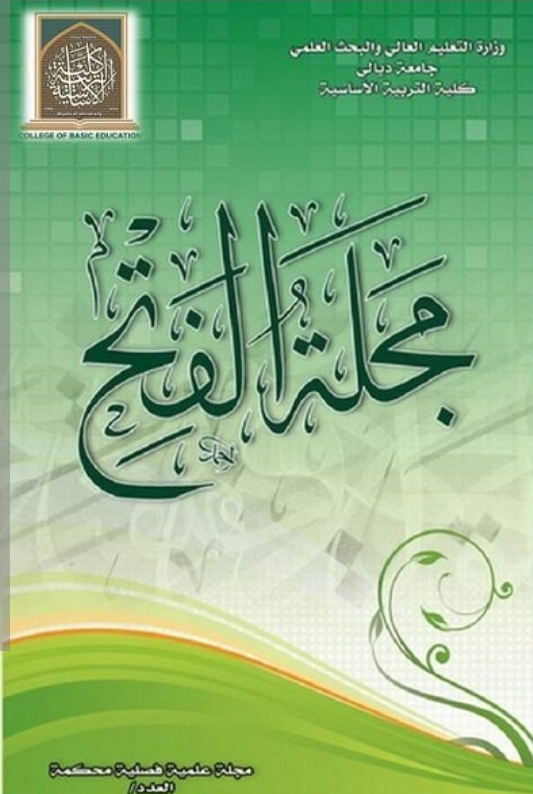The impact of the Koran in preserving the Arabic language
Abstract
Praise be to God who bestowed upon man and favored him, and thanks for his innumerable blessings, and prayers and peace be upon His honorable Messenger Muhammad bin Abdullah, the illiterate and trustworthy (PBUH)) the most eloquent of those who uttered adverbs and on his good and pure family, and his honorable companions.. and after.. If the book is the best companion for a person, then the best of this companion is the Book of God Almighty, and if knowledge is an honorable demand that man seeks on this simple matter, then the noblest and greatest of them is what is attached to the Holy Book of God (the Noble Qur’an). The Holy Qur’an has a great impact on the Arabic language and the Arabs in general, as the Arabs before Islam used to live in Makkah Al-Mukarramah, which is the holy city for them, and the Messenger Muhammad (PBUH) was chosen as a messenger of God Almighty, and he is from (Bani Abd Manaf), which is the belly of the Quraish tribe. And she has a lot of originality and honor. God Almighty sent this noble Prophet to bring them a word from God, which is the Noble Qur’an. Islam appeared, and it must spread through the Holy Qur’an. This Qur’an has a great impact on the hearts of the Arabs who refused to listen to it at the beginning. They hate listening to it for fear of influencing them, in order to preserve the customs and traditions of the Jahiliyyah, and they prevented many Muslims from reading the Qur’an so that it would not affect their boys and women. That is why (Al-Walid bin Al-Mughirah) says his famous saying in the Holy Qur’an: “It has sweetness and sweetness upon it, its lower part is fruitful, its upper part is waterlogged, and it rises above it and is not above it.” The official and upscale, on which the Arabs rely in speech, hadith and rhetoric. And as we know, where the Arabs were a lot of controversy, discussion and dialogue, and in all of that was their reliance on the Noble Qur’an, because it facilitated for them a lot of evidence and proofs in ways of persuasion to others, as the Almighty says: to have } (2)
Downloads
Published
How to Cite
Issue
Section
License

This work is licensed under a Creative Commons Attribution 4.0 International License.
حقوق النشر والترخيص
تطبق مجلة الفتح للبحوث التربوية والنفسية ترخيص CC BY (ترخيص Creative Commons Attribution 4.0 International). يسمح هذا الترخيص للمؤلفين بالاحتفاظ بملكية حقوق الطبع والنشر لأوراقهم. لكن هذا الترخيص يسمح لأي مستخدم بتنزيل المقالة وطباعتها واستخراجها وإعادة استخدامها وأرشفتها وتوزيعها ، طالما تم منح الائتمان المناسب للمؤلفين ومصدر العمل. يضمن الترخيص أن المقالة ستكون متاحة على نطاق واسع بقدر الإمكان وأن المقالة يمكن تضمينها في أي أرشيف علمي.
لمزيد من المعلومات، يرجى متابعة الرابط: https://creativecommons.org/licenses/by/4.0/.


